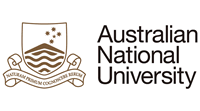About the Project
Local and global threats are undermining the capacity for productive coral reefs, kelp forests and other key habitats to support marine biodiversity and healthy ecosystem functions, which underpin goods and services critical to the wellbeing of millions of people worldwide. We need to understand how these marine biomes will be respond to shifts in climate, harvest pressure, coastal development and other types of disturbance if we are to develop effective, evidence-based approaches to conservation and management.
This PhD project will explore some of the most pressing issues facing our marine ecosystems by using a combination of field-based observations and experimental manipulations to reveal the local and global-scale processes driving the patterns we observe in marine populations and communities. The specific directions your PhD research will take and the biome(s) you work in will depend on your interests and experience, and which of our long-term datasets you might wish to use in developing hypotheses, models and predictions. You will gain new skills in quantitative marine ecology (e.g., experimental design, underwater survey techniques, behavioural ecology, seascape mapping, multivariate statistics), field logistics (spanning boating, diving, permits), and translating your research into recommendations for conservation and management action.
Our Lab Group
The Marine Habitat Ecology (HabEco) group (biology.anu.edu.au/research/groups/fulton-group-marine-ecology-and-conservation) are interested in how individuals, species and communities interact with the physical and biological conditions within their habitats. Working with multiple study taxa (spanning macroalgae to fishes), we collaborate closely with relevant state and federal management agencies (often through co-supervision of student research) to ensure our research is designed and delivered in ways that improve the effectiveness of marine conservation and management to deal with known and emerging threats. A short video about some of our research at Ningaloo reef can be seen here: https://youtu.be/4sfqzUI1p9o
The Division of Ecology and Evolution
The Division of Ecology and Evolution at the Australian National University (ANU) (biology.anu.edu.au/research/divisions/ecology-and-evolution) provides an outstanding research environment with a world-class reputation. We work hard to provide excellent supervision and we take pride in providing an atmosphere that values intellectual rigour, inclusion, mentorship and fun. Graduate research students are well supported through internal funding, including for conference travel, and our research facilities are second to none. We have a thriving community of PhD and Postdoctoral researchers from around the world. Our graduates go on to productive careers in many areas of science, conservation, management and beyond.
Canberra and the ANU
The ANU campus is situated in the heart of Australia’s capital city, Canberra, which is ranked as the third best city in the world according to Lonely Planet (2018) and is Australia’s most liveable city (Life in Australia Report 2019). The ANU has an international reputation for research excellence and is ranked among some of the very best universities in the world (QS World University Ranking 2019).
Funding Notes
Candidates: These scholarships are only open to citizens and permanent residents of Australia and New Zealand. ANU scholarships are highly competitive, and cover all fees and a ~$27K pa stipend. To be put forward, you need outstanding undergraduate marks and first-class Honours or Masters by research (or expect to gain these by end-2019). Given this is a field-based project, you should have at least Rescue-level SCUBA certification.
Expressions of interest: Please email with a detailed CV, full academic transcripts, and a brief description of your research interests and how they intersect with this project.

 Continue with Facebook
Continue with Facebook

